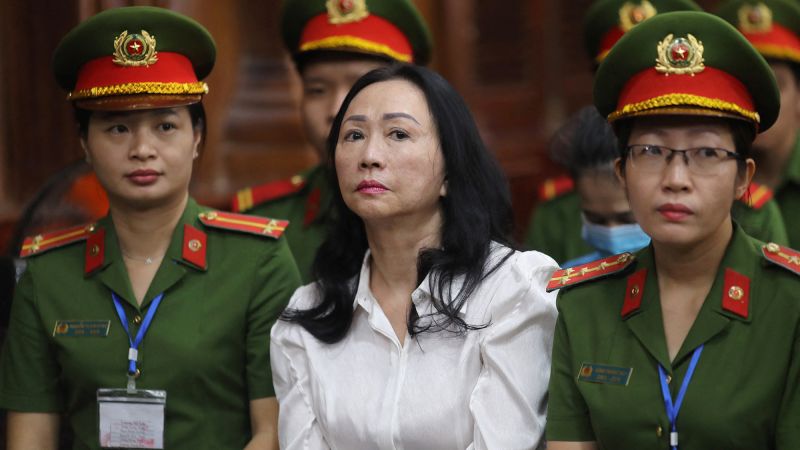Vietnam’s anti-corruption campaign is in full swing with the recent death sentence of real estate tycoon Truong My Lan, who was found guilty of a $12.5 billion financial fraud case. This high-profile case has shaken the public and raised concerns among foreign investors in a country known for its authoritarian stability. Lan’s trial was conducted publicly in state media, revealing her involvement in bribery, violating bank regulations, and embezzlement. The scale of her misconduct caused significant damage to Saigon Joint Stock Commercial Bank, resulting in one of the largest financial fraud cases in Vietnam’s history.
The crackdown on corruption in Vietnam has led to the resignation of top leaders, including President Vo Van Thuong, for violations that tarnished the Communist Party’s reputation. This ongoing purge within the party leadership is seen as a message that no one is above the party rules, as even high-ranking officials have been forced to step down. The government’s anti-corruption campaign is aimed at addressing deep-rooted issues of power, control, and succession within the party, with Secretary General Trong leading the charge to maintain purity and ideology in the party.
Similar to China, Vietnam is a one-party system that has launched anti-corruption campaigns to combat systemic corruption within the government. Despite the economic success of Vietnam, recent corruption scandals have negatively impacted investor confidence and the country’s image. The purged leaders were considered pro-business faces of Vietnam, leading to concerns among foreign investors about the stability of the country’s leadership. The current leaders maintain that the resignations will have little impact, but the uncertainty surrounding the next generation of leaders remains a key concern.
The future political landscape of Vietnam is uncertain as the country navigates through a period of instability and political infighting. Top leader Trong’s continued leadership until 2026 raises questions about the country’s direction and stability. The anti-corruption campaign has targeted not only party officials but also corporate figures linked to the party, signaling a broader crackdown on corruption in Vietnam. The country’s partners and investors will have to adapt to the changing political realities as Vietnam grapples with ongoing challenges related to corruption and governance.
Despite the challenges posed by corruption scandals and leadership changes, Vietnam continues to be an attractive destination for foreign investment, with a growing economy and a thriving middle class. The country’s economic success story has lured many foreign investors from China, contributing to its status as a global manufacturing hub. However, the recent turmoil in the political arena has raised concerns about the country’s regulatory capacity and investor confidence. As Vietnam transitions to new leadership, the focus will be on maintaining stability and addressing the issues of corruption that have plagued the country for decades.


